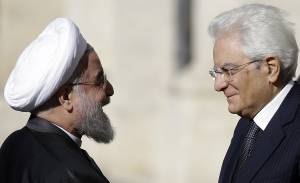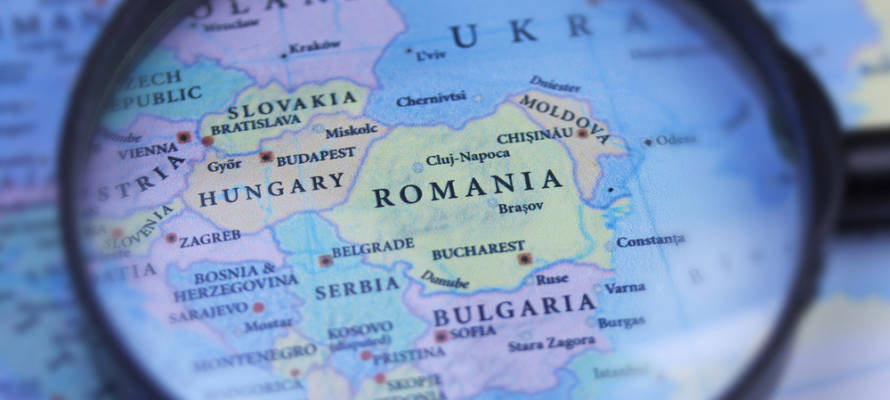Dismissing Europe entirely as a place where support for Israel can be found is a fallacy. Israel has friends in Eastern and Central Europe.
The rift in the European Union between the older, mostly Western European, members and the newer ones from Eastern Europe has become increasingly clear lately over the refusal of most Eastern European countries to receive migrants from the Middle East and North Africa.
The European Commission has proposed reforms to EU asylum rules that would see financial penalties imposed on members refusing to take in what it deems a sufficient number of asylum seekers, amounting to $290,000 for every migrant. The penalties, if passed, are particularly aimed at the newest EU countries, such as Hungary, Poland, the Czech Republic and Slovakia, since these are countries who have closed their borders to migrants or are in the process of doing so.
Disagreement over how to respond to the migrant crisis in Europe, however, is not the only issue dividing the Eastern European members of the EU from Western European ones. Israel is another such contentious issue.
Several Eastern European countries, while having pasts rife with virulent anti-Semitism and atrocious records of behavior toward Jews during the Second World War, differ greatly in their policies toward Israel compared to their Western European counterparts. That does not mean that everything they do is in favor of Israel, far from it. The entire EU, including those Eastern European countries, voted in favor of the latest UN resolution to slander Israel, when they voted that Israel was the world’s only health violator. There must be some diplomats sitting around with very bad tastes in their mouths.

Palestinian Authority head Mahmoud Abbas (R) and European Union foreign policy chief Federica Mogherini.(STR/Flash90)
Nevertheless, Eastern European countries today represent the only part of Europe that, out of national interest or a genuine sense of solidarity, stands with Israel in one form or another. This is already saying much on a continent where, for example, Dutch Foreign Minister Bert Koenders only recently declared that calls to boycott, divest and sanction Israel are considered by the Netherlands to be “freedom of speech” and therefore legal. (It would appear that there are some serious cognitive issues in the Dutch government: What happens when the calls actually lead to real action, such as municipalities refusing to do business with Israel or refusing to buy Israeli goods and services? Would that be legal, too, according to the foreign minister?)
In December, Czech lawmakers passed resolutions criticizing the decision by the European Union to label Israeli goods from Judea and Samaria and the Golan Heights, and urged the Czech government not to abide by it. Characteristically, all Czech political parties supported the resolutions, even those on the Left, save for the Communists, who in keeping with their Soviet legacy, claimed that the Czech Republic was too complacent towards Israel. In a country like the Czech Republic, which paid a high price for the experiments of Communism for over 50 years, such slogans make a negligible impression.
Czech Culture Minister Daniel Herman also praised the resolution, saying that the vote “aligned the Czech Republic with democratic countries that fully respect human rights and reject any form of discrimination.” Close your eyes and picture any Western European politician uttering those words. Perhaps Swedish Foreign Minister Margot Wallstrom? No, it is impossible even to imagine such a thing.
The Czech Republic’s friendship with Israel extends back to the 1948 war, when the Czechs sold weapons to the fledgling Jewish state when very few others, wanted to do so. It would be sobering to remember at this point that the United States at that time enforced a weapons embargo on the entire region, whereas the British were in fact supplying both weapons and leadership to Arab militaries out to extinguish the Jewish state. During Soviet occupation, this friendship naturally went into a half-century long hiatus, but was rekindled after the end of the Cold War.

Iranian President Hassan Rouhani (L) meets Italian President Sergio Mattarella at the presidential palace in Rome.
(Gregorio Borgia/AP)
Most recently, the Slovak and Lithuanian parliaments have decided to form pro-Israeli caucuses, a result of an initiative from the Knesset Christian Allies Caucus, the World Jewish Congress and the International Christian Embassy in Jerusalem.
“As Western European countries continue to turn their backs on the Jewish state, we see that Eastern European countries are more supportive than ever of the only democracy in the Middle East — Israel,” Knesset Christian Allies Caucus director Josh Reinstein said.
This may also be because these countries still retain a sense of logic and pride in their heritage and do not harbor any secret wish for national suicide. After living under totalitarianism for over half a century, while Western Europe was harvesting the peace dividend of being under the American protective wing and growing increasingly more wealthy and materialistic, forgetting completely what it means to be terrorized, those countries who used to be under the Soviet boot see very clearly that Israel’s fight against Islamic terrorism is their fight, too.
Dismissing Europe entirely as a place where support for Israel can be found is a fallacy, even if it is admittedly one that is easy to make in the current circumstances. There are friends of Israel in Eastern and Central Europe, even if their membership of the European Union frequently renders their scope of action limited. This is very important to keep in mind. Too many observers in Israel and elsewhere forget that Europe consists of more than just Western Europe.
By: Judith Bergman/The Algemeiner. Bergman is a writer and political analyst living in Israel. This article was originally published by Israel Hayom.

Do You Love Israel? Make a Donation to Show Your Support!
Donate to vital charities that protect Israelis and help inspire millions around the world to support Israel too!
Now more than ever, Israel needs your help to fight and win the war -- and also the battle of public opinion.
Anti-Israel bias and boycotts are out of control. Israel's enemies effectively use social media to incite brutal terror against innocent Israeli civilians. Please help us fight back!
See our Privacy Policy


